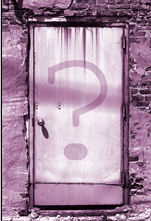
Who hasn’t experienced a period of questioning, soul-searching and doubt? It happens when a tiny insidious idea sneaks in and creates a crack— convictions crumble and a fault opens without your knowledge, just like in the movie “Inception” when the main character plants an idea in an individual’s subconscious. A real transition always starts when this idea has grown sufficiently to call out to us.
Usually, the term “transition” is used when you lose your job and find yourself in “career transition.” In the past, this was referred to as outplacement—not as pretty, perhaps, but more realistic.
If a job transition is a kind of trip, outplacement is an operational process that involves managing an application marketing strategy to land a new job as soon as possible. Note that this is neither simple nor devoid of in-depth reflection, although in most cases, you end up finding a similar job in another company. The scars that remain are generally caused by a wounded ego, disappointment in being let down by people you thought you could trust, loss of self-confidence, and—probably the worst—the fear of being marginalized and stigmatized as someone who has caught a shameful disease by losing your social status (even temporarily) and income.
Many people prefer to have this transition a.k.a. torture end as quickly as possible rather than seeing it as an opportunity to consider a career change (and who could blame them?). They usually accept a job fairly quickly and get back in the saddle, but hold on to a deep fear that history will repeat itself. As a result, some avoid standing out by taking few or no risks. They stay low profile so as to better blend into the background and not be found when the time for cutbacks rolls around again.
Some look for a job in the same field or same industry simply because that’s what they love. No need to ask yourself all kinds of existential questions—you lose your job one day because of cutbacks, and you find another one later in a growing company.
For others, a professional transition is more of a quest, a solo adventure whose origin is rooted in the person. This small idea grows, bringing us to see other possibilities and another professional future. “And if?” The problem in this case is that there is no real process and mechanism for managing this transition—it’s a leap into the unknown that draws you in and swallows you whole.
The fundamental difference between these situations (outplacement and transition) resides in the nature of the unknown. In the first case, the unknown is “How much time will it take me to find a similar position?” while in the second, it is “What do I feel like becoming?” It’s a lot more comfortable to deal with a schedule than a blank page, and the belly of the beast is a big blank page. Recognizing which situation applies to you is essential for dealing with it and directing your efforts in the right place. If you try to manage a professional transition like a job search, you will lose your way and vice-versa.
, everything is blurry and dark, and it is almost impossible to answer this type of question: “What kind of job are you looking for?”, “What are your projects?”, “What drives and inspires you?” There is nothing worse than pretending that you know the answers when you do not. Informed recruiters will learn to differentiate candidates who are looking for themselves from the ones who are looking. Although the role of recruiter is not that of a coach, do not hesitate to challenge candidates who have lost their way—they will only be more grateful and an ambassador of your employer brand!
Finally, for those asking themselves about this famous transition, a friend recently gave me an excellent book that I recommend to anyone asking themselves “the” question: Po Bronson’s “What Should I Do with My Life?” It was high time that I asked myself that question, the year I retired for the second time. . .
Nathalie Francisci
Board Director, Speaker and Colomnist
www.nathaliefrancisci.com